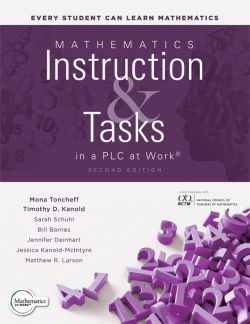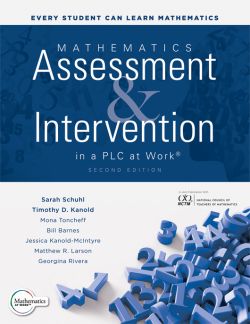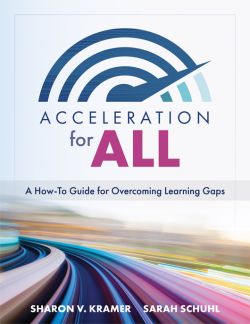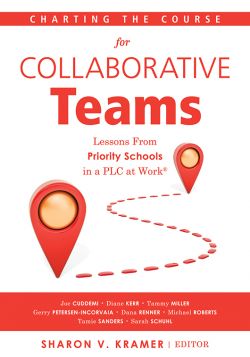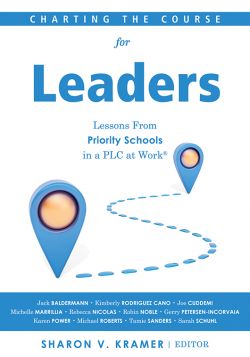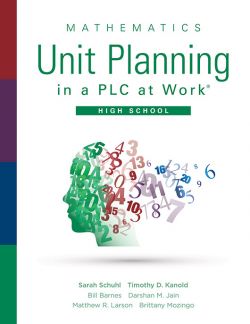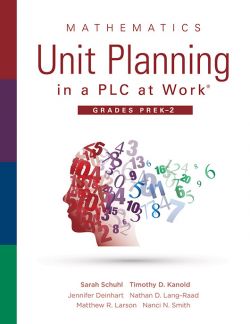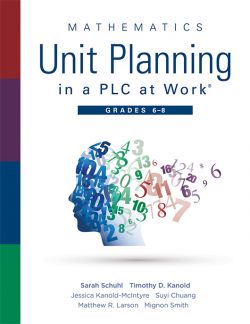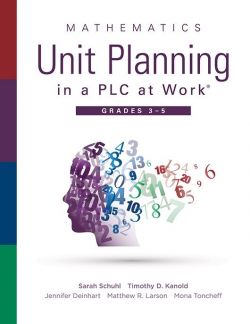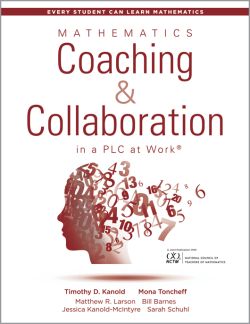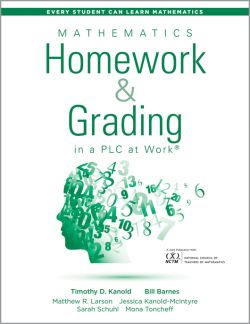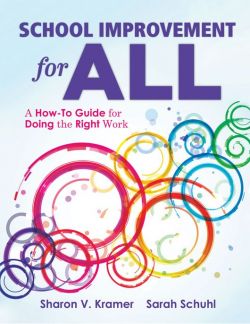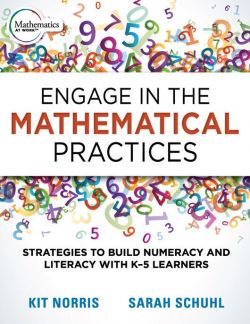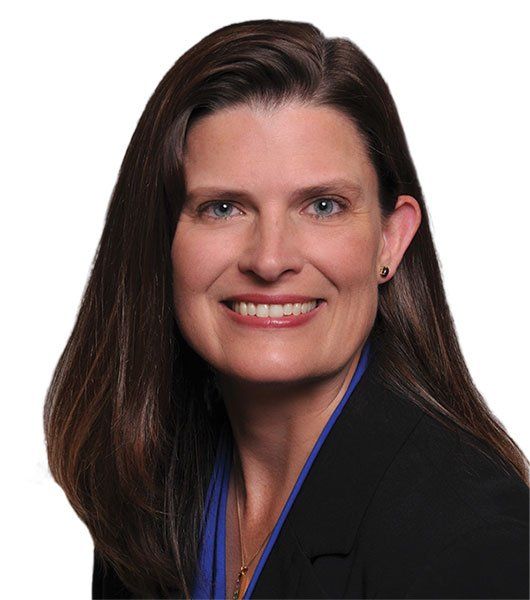
Sarah Schuhl
Sarah Schuhl specializes in professional learning communities, mathematics, assessment, school improvement, and RTI. She has been a secondary mathematics teacher, high school instructional coach, and K–12 mathematics specialist.
Sarah Schuhl explains why it is important to maintain high expectations for all students.
Sarah Schuhl
Sarah Schuhl specializes in professional learning communities, mathematics, common formative and summative assessment, school improvement, and RTI. She has been a secondary mathematics teacher, high school instructional coach, and K–12 mathematics specialist for more than 20 years.
Sarah was instrumental in the creation of a PLC in the Centennial School District in Oregon, helping teachers make large gains in student achievement. She earned the Centennial School District Triple C Award in 2012.
In addition to her work in Oregon, Sarah has worked with other districts throughout the United States to implement PLCs and create common assessments. Her practical approach includes working with teachers and administrators to create a guaranteed and viable curriculum, implement assessments for learning, analyze data and instructional practices, and collectively respond to student learning. She is a consultant and coach in many schools, including those targeted in school improvement.
Sarah’s work with schools includes short- and long-term professional development working as an embedded coach serving teams as small as two members to larger presentations focused on targeted outcomes serving an entire school or district staff K–12. She has worked with schools to learn or refine their PLC practices—including administrators, leadership teams, and collaborative teams. She works to understand the current reality of a school or team and then provide resources and protocols to move teams forward as they define their guaranteed and viable curriculum, design common assessments, analyze data, and plan for RTI.
Sarah has written several books to aid teams in their work. For schools searching to improve practices, School Improvement for ALL, provides resources and rubrics for leaders and collaborative teams to work more effectively and efficiently. For K–12 mathematics teachers and leaders, she has co-authored a K–5 book, Engage in the Mathematical Practices, focused on engaging instructional practices. Most recently, she is a co-author for a K–12 Every Student Can Learn Mathematics series, which provides tools for teams in the areas of assessment and intervention, instruction and tasks, homework and grading, and coaching and collaboration.
In the past as a chair and currently as a panel member, Sarah serves as a member of the National Council of Teachers of Mathematics Editorial Panel for the journal Mathematics Teacher. She has spoken at national conferences for NCTM and NCSM. Her previous work with the Oregon Department of Education included designing mathematics assessment items, test specifications and blueprints, and rubrics for achievement-level descriptors. She has also contributed as a writer to a middle-school mathematics series and an elementary mathematics intervention program.
Sarah earned a bachelor of science in mathematics from Eastern Oregon University and a master of science in mathematics education from Portland State University.
Mathematics at Work™
Mathematics at Work™ experts are practitioners with deep expertise in research-affirmed mathematics instruction and assessment processes that ensure improved student learning. Work with them to develop a collaborative teacher culture focused on engaging instruction and formative feedback assessment practices.
Priority Schools in a PLC at Work®
Hand-selected and trained by PLC at Work champions our Priority Schools in a PLC at Work experts have proven success in leading the PLC at Work process and have specific experience with the unique challenges that face schools labeled as low performing. Work with them to identify and prioritize critical areas of growth to implement changes in a timely manner with a focus on student achievement.
PLC at Work®
PLC at Work® experts have proven success in leading the PLC at Work process in a school or district. Work with them to implement a focus on learning, build a collaborative culture, and create a results orientation that leads to sustained, substantive school improvement.
RTI at Work™
RTI at Work experts focus on learning for all students and will empower you to build your own timely, targeted, and systematic intervention program. Work with them to implement a results-driven program that provides targeted instruction at all tiers of intervention.
Presentations by Sarah Schuhl
- Building Common Assessments
- Navigating the Four Critical Questions
- Data, Data, Data: What Do We Need? What Do We Do with It?
- Focusing Teams and Students with Learning Targets
- Prioritizing Standards
- Creating and Using Common Summative and Formative Assessments
- Analyzing and Responding to Formative Assessment Data
- Putting it All Together: Linking Instruction, Assessment, and Interventions
- Linking the Work of Collaborative Teams to Student Learning
- Effective Grading Practices: Solving the Grading-Learning Dilemma
- When Content Isn’t Enough: Strategies to Help Students Really Learn Mathematics
- Assessment in Your K–12 Mathematics Classroom
- Formative Assessment in Your K–12 Mathematics Classroom
- Planning for Mathematics Instruction and Assessment
- Lessons that Matter: Teaching Mathematics in Middle School
- Redefining Mathematics Instruction in Your 9–12 Classroom
- Ensuring ALL Students Learn Mathematics
“Sarah is obviously very intelligent, caring, and approachable. She is a genuine teacher who shares real problems and solutions.”
“This was one of the most practical workshops I have attended. I walked away with many useful strategies for improving my instruction and assessment.”
“Thanks so much for coming and hearing our voices. I know it is a part of what you had to do, but you really made it such an easygoing experience. Sometimes when we have to do surveys, interviews, etc., it can be stressful, but you have such a genuine personality. I appreciate it!”

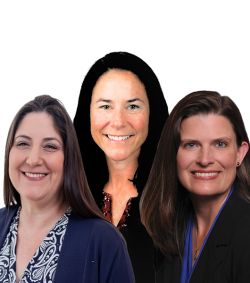














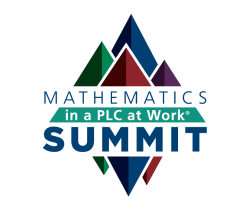

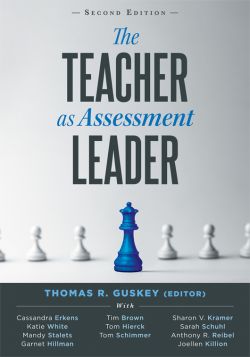
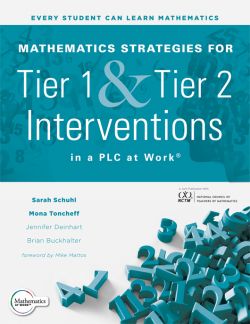
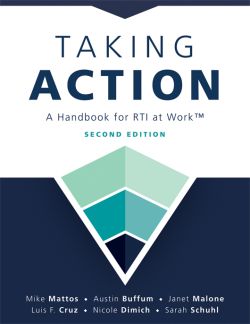
![Taking Action [AI Book Assistant]](https://mediafiles.solutiontree.com/catalog/product/cache/ba047d73cd1d3869dbe79f6d477567e5/i/m/image20251030154550.jpg)
